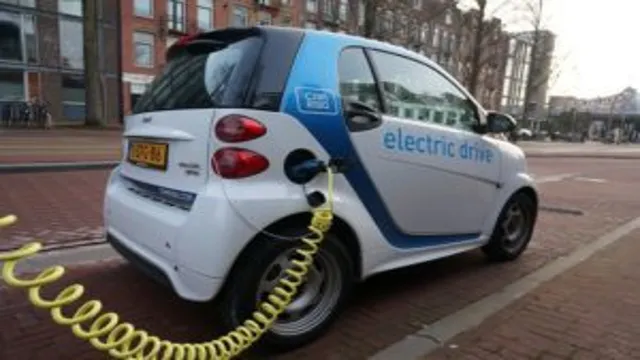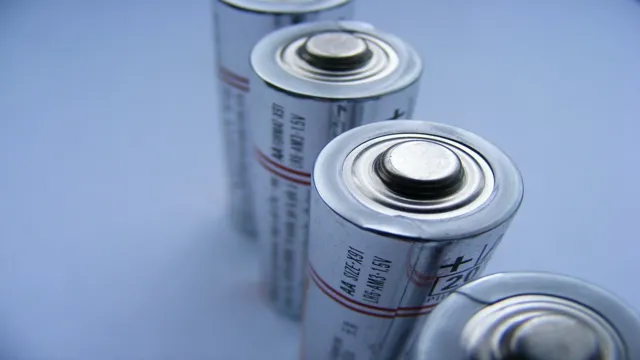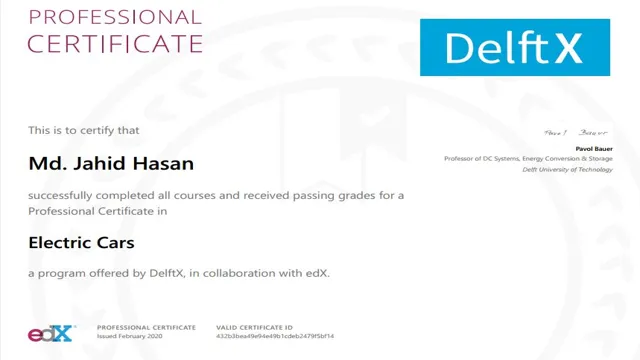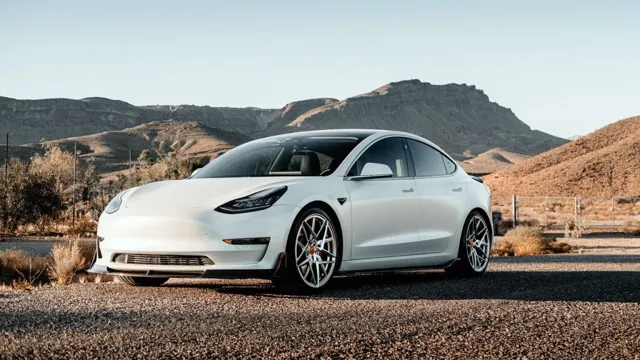Revolutionizing the Roads: The Promising New Technology Set to Replace Electric Cars
Have you ever imagined a world where technology could revolutionize the way we interact and communicate with each other? Well, the future is here, and it looks promising! A revolutionary new technology has hit the market, and it’s opening up endless possibilities for businesses and individuals alike. This technological breakthrough has the power to transform the way we live, work, and play, and could potentially revolutionize entire industries. The innovative technology is designed to enhance communication, productivity, and efficiency, making it a game-changer for businesses looking to stay ahead in the competitive landscape.
It’s also set to revolutionize personal life, bringing people closer and enabling seamless interactions like never before. The implications of this new technology are enormous, and the potential for disruption is significant. It’s already causing a stir in the tech world, and experts are predicting that it will transform industries and lead to the creation of new products and services that we cannot even imagine yet.
Stay tuned as we delve deeper into this groundbreaking technology and explore its potential to shape the world we live in. The future is looking bright, and we can’t wait to see where this journey takes us!
A Better Alternative to Electric Cars
While electric cars have gained popularity over the years, a new technology that could replace them is already in the works – hydrogen fuel cell vehicles. These vehicles use hydrogen gas to power their electric motors, producing only water as a byproduct. This makes them a cleaner alternative to traditional gasoline-powered cars and even electric cars, which still require electricity from power grids that often rely on fossil fuels.
Additionally, hydrogen fuel cells offer longer driving ranges and faster refueling times compared to electric cars. However, the technology is still in its early stages, and the infrastructure to support widespread adoption is not yet in place. But as more research and development goes into hydrogen fuel cell vehicles, they may become a viable alternative to electric cars in the future.
Reducing Environmental Impact
As we become more aware of the impact our actions have on the environment, many people are looking for ways to reduce their carbon footprint. While electric cars are often touted as the solution, there may be a better alternative. Have you heard of hydrogen fuel cell vehicles? Instead of relying on batteries that need to be charged with electricity, these cars use hydrogen to generate electricity and power the motor.
This means they emit only water and heat, making them much cleaner than traditional gasoline-powered cars. While they may not be as widely available as electric cars, they are becoming more common and could be a viable option for those looking to reduce their environmental impact. Have you considered making the switch to a hydrogen fuel cell vehicle?
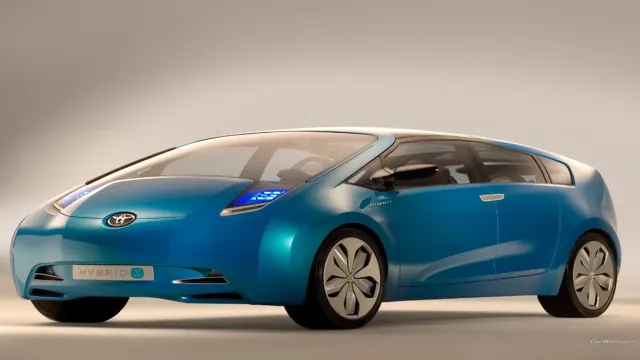
Lower Cost for Consumers
When it comes to eco-friendly transportation, electric cars have been dominating the market for a while now. But what if I told you there’s a better alternative that’s not only cheaper but also more convenient? That alternative is hydrogen fuel cell vehicles. Unlike electric cars that require hours of charging, hydrogen-fueled cars can be refueled in just a few minutes, making them perfect for long-distance trips.
Plus, they have a longer range than most electric cars, so you won’t have to worry about running out of juice mid-trip. Another great thing about hydrogen fuel cell vehicles is that their production costs are slowly coming down, which means lower prices for consumers. In fact, studies have shown that owning a hydrogen car could be cheaper in the long run than owning an electric car.
Not only are they easier to refill, but they also have a longer lifespan and require less maintenance. Plus, as more and more car manufacturers start to produce hydrogen fuel cell vehicles, prices are expected to drop even further. Of course, there are still some drawbacks to hydrogen cars.
For one, there are currently fewer refueling stations available compared to electric charging stations. However, this is slowly changing as governments and private companies invest in building more hydrogen refueling stations. Another potential issue is public perceptions of the safety of hydrogen fuel cells.
However, studies have shown that these cars are just as safe as any other vehicle on the road. Overall, hydrogen fuel cell vehicles offer a promising alternative to electric cars. They’re cheaper, more convenient, and just as safe.
So, if you’re in the market for an eco-friendly car, it’s definitely worth considering this option.
How It Works
A new technology could potentially replace electric cars in the near future. This new technology, called hydrogen fuel cell technology, generates electricity from a chemical reaction between hydrogen and oxygen, and emits only water vapor and heat as by-products. Unlike electric cars, which require charging and can take hours to fully charge, hydrogen fuel cell vehicles can be refilled with hydrogen in just a few minutes at a hydrogen refueling station.
Additionally, hydrogen fuel cell vehicles have a longer range than electric cars, making them more suitable for long trips and commutes. While hydrogen fuel cell technology is still in its infancy, automakers like Toyota and Honda have already released hydrogen fuel cell vehicles, and many more are expected to follow suit in the coming years. It remains to be seen if hydrogen fuel cell technology will completely replace electric cars, but it certainly presents a promising alternative.
Integrating with Current Infrastructure
Integrating new technology with existing infrastructure can seem like a daunting task, but it doesn’t have to be. With the right approach, it can be a seamless transition that improves efficiency, productivity, and scalability. The first step is to assess the current infrastructure and identify areas that need improvement.
From there, you can research and select technology solutions that will complement your existing systems and integrate smoothly. This may include implementing new software, upgrading hardware, or leveraging cloud-based services. Once the new technology is in place, it’s critical to provide training and support to ensure user adoption and ease of use.
By taking a strategic approach to integration, you can modernize your infrastructure and position your organization for long-term success.
Efficient Energy Conversion
Efficient energy conversion is the process by which energy is transformed into a usable form that can be converted into other forms. Simply put, it is the ability to convert different types of energy into useful energy. The efficiency of energy conversion is important because it determines the cost of energy production and the environmental impact.
There are several ways to improve energy conversion efficiency, such as using renewable energy sources, reducing energy losses, and improving the energy conversion process itself. In order to make the conversion process efficient, there are several factors that must be taken into consideration, such as the type of energy being converted, the conditions under which the conversion is taking place, and the materials being used. By focusing on these factors, we can create a more sustainable and efficient energy system for our future.
Advancements in Battery Technology
Battery technology has come a long way in recent years, and advancements in this field have made it possible to power a wide variety of devices and vehicles in new and exciting ways. One of the key ways that battery technology has advanced is through the development of more efficient and powerful lithium-ion batteries. These batteries are able to store more energy in a smaller space, making them ideal for use in everything from smartphones and laptops to electric vehicles and even homes.
Additionally, research is being done on new types of batteries, such as solid-state batteries, which promise to be even more efficient and long-lasting than current models. With such exciting developments in battery technology, it’s clear that the future of energy storage is bright.
Implementation and Adoption
It’s tough to imagine a future where electric cars are no longer the norm, but consider this: what if a new technology came along that could replace them? It may seem improbable, but with the speed at which technology is advancing, it’s not impossible. The implementation and adoption of such a technology, however, would be key. Think about how quickly electric cars caught on; despite their higher cost compared to gas-powered vehicles, people were drawn to their eco-friendliness and futuristic appeal.
For a new technology to replace them, it would have to offer even more benefits. Perhaps it would be faster to charge and have longer range, or maybe it would be powered by a renewable resource that’s even cleaner than electricity. Whatever it is, early adopters will be crucial in spreading the word and building excitement for this new technology.
And as adoption grows and production costs come down, it could become the new normal just as quickly as electric cars did. It’s an exciting prospect to consider, and it just goes to show how much innovation can transform our world.
Challenges to Overcome
One of the main challenges in implementing and adopting new technologies is resistance to change. Many individuals are naturally resistant to changes in their routines and may feel uncomfortable with new processes or equipment. This resistance can be compounded in workplace settings where employees may feel that their job security or expertise is threatened by new technology.
To overcome this challenge, it’s important to communicate the benefits of the new technology clearly and make sure that employees understand how it can make their work easier or more efficient. Training sessions and opportunities to practice using the new technology can also be helpful in easing the transition and making employees more comfortable with the change. It’s important to remember that change takes time and patience, but with the proper approach, implementation and adoption of new technology can be successful.
Potential Benefits for Society
Implementation and Adoption of AI may have numerous benefits for society. By leveraging AI-based tech, we could witness improvements across sectors like healthcare, education, and transportation. For instance, AI-based tools could help doctors to diagnose illnesses accurately and provide tailored treatments while automating administrative tasks.
Similarly, AI-based learning systems could personalize curriculums for students and provide insights into their learning progress. Additionally, AI-powered transportation systems could reduce congestion, decrease pollution, and enhance road safety. However, the full potential of AI-based tech can only be realized if it is implemented and adopted ethically and responsibly.
The adoption of this technology at a large scale would require a collaborative effort of policymakers, tech companies, and the public. Thus, ensuring transparency, accountability, and accessibility in the implementation of AI would be critical. Overall, the implementation and adoption of AI-based tools may have the potential to revolutionize our society, but it is vital to ensure that it is done in a responsible, ethical, and collaborative manner.
Future Implications
The rise of electric cars has been a significant step towards environmentally responsible transportation. However, with the advancements in technology, a new player is emerging that could replace electric cars altogether. Hydrogen fuel cells have been gaining popularity as a cleaner, more efficient alternative to electric vehicles.
Unlike electric cars, which require long charging times and have limited ranges, hydrogen fuel cell cars can refuel in minutes and travel for hundreds of miles before refuelling. Plus, hydrogen fuel cells emit only water vapour as a byproduct, making them an even cleaner option than electric vehicles. While hydrogen fuel cell cars are still in the early stages of development, they have the potential to revolutionize the automotive industry.
Conclusion
In the ever-evolving world of technology, it’s not surprising that a new player is emerging in the transportation sector. With the potential to revolutionize the way we move from point A to point B, this new technology could replace the electric car as the eco-friendly choice for the future. Of course, it’s not an easy feat to overthrow the existing champion, but as history has shown us, innovation always finds a way to disrupt the status quo.
So buckle up, folks – it’s a wild ride ahead!”
FAQs
What is the new technology that could replace electric cars?
Hydrogen fuel cell technology is being seen as a viable alternative to electric cars.
How does hydrogen fuel cell technology work?
Hydrogen is combined with oxygen in the fuel cell to produce electricity, with water being the only byproduct.
Is hydrogen fuel cell technology more efficient than electric cars?
Yes, hydrogen fuel cell technology has higher energy efficiency and longer driving range compared to electric cars.
Can existing gas stations be used for refueling hydrogen fuel cell cars?
Some gas stations are already equipped with hydrogen refueling stations, and more are being built as the technology gains popularity.
